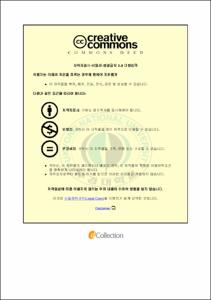ITQ 어업관리제도의 경제적 효과에 관한 연구
- Alternative Title
- A Study on Economic Effects of the ITQ Fishery Management : Focusing on the Red Snow Crab Trap Fishery
- Abstract
- Fish stocks are one of the most important resources in terms of main source of supplying protein for humans. Publics focused on catching fish and ignored need of conservation for sustainability of fisheries resources.
Overexploitation have resulted in environmental destruction, stock depletion and economic losses in all around the world. These issues also apply to marine capture fishery in the sense that marine capture has been worsened in Korea.
To solve the problems, a major concern of regulators is how to give incentives for fishermen not to overexploit fish, but management fish stocks well. Nowadays, special attentions are paid to right-based management. Right-based management can create incentives to change participant’s behaviors by setting some bundle of property rights for sustainability of fishing activity which differ from command and control fisheries management.
Prior to examining property rights and ITQs(Individual Transferable Quotas) that belongs to right-based management, this paper begins by providing background information on the tragedy of commons and external diseconomy under open access fishery to show the need of fishery management.
Next, property right can be classified by regime or types. Also, property right can be diverse according to the combinations of characteristic of right. In fisheries sector, especially, ITQs that authorize fishermen to catch certain amount(portion) of fish and allow trading their quotas are a sort of harvest right(the use right). ITQs have been proven to significantly reduce overcapitalized fishing effort and increase incentives for owners to invest in stewardship of the fishery resource.
The time for studying ITQs might be right because TAC regime in Korea has been adopted, and more fisheries have been brought under the regime as overfishing is being curtailed under TAC system.
This paper focus primarily on estimating economic optimum under two simulation models in where fishermen can trade their quotas and simulating how ITQs may implicitly affect economic efficiency in Red Snow Crab Trab fishery prior to its actual implementation of ITQs.
The first static economic model estimates potential net profits in ITQs with calculated harvest functions and compares net profits earned from different fisheries management; status quo fisheries management, open access and ITQs.
Simulation is applied to a sample of Red Snow Crab Pot Society in Kyeong Buk Province in Korea. This approach estimates derived supply functions for quotas to simulate the expected equilibrium market price for quotas and potential quasi-rents. This model indicates that potential profits will be greater from quota trade than status quo policy.
The results of two empirical estimations in this paper will show that ITQs are a powerful management tool in the aspect of increasing fisherman's potential net profits. ITQs are not a panacea to all the fisheries that have faced problems. However, it is clear to see that ITQs are able to improve sustainability of fishery in a domestic level considered of ITQs operating countries.
Particularly in Korean fisheries, it is necessary to look for a new way of managing fisheries, ITQs, to address above-mentioned problems such as overfishing, overcapacity and the rent dissipation due to stock depletion in the process of establishment of future fishery management policy.
- Issued Date
- 2013
- Awarded Date
- 2013. 2
- Type
- Dissertation
- Publisher
- 부경대학교
- Alternative Author(s)
- Kang, Kyung Hee
- Affiliation
- 부경대학교 대학원
- Department
- 대학원 해양산업경영학과
- Advisor
- 이상고
- Table Of Contents
- 제1장 서론 1
제1절 연구목적 및 배경 1
제2절 연구범위 및 연구방법 2
제2장 선행연구 및 이론적 배경 4
제1절 선행연구 4
1. 국내 선행 연구 검토 4
2. 국외 선행 연구 검토 6
제2절 이론적 배경 8
1. 수산자원 남획과 지대소멸 8
제3장 ITQ제도의 이론적 기본 체계와 기대효과 13
제1절 권리기반 어업관리 13
1. 권리기반 어업관리 13
제2절 ITQ 기본 체계와 운영관리체계 31
1. 배분체계 32
2. ITQ의 공급관리체계 34
3. ITQ 거래의 시장체계 36
4. ITQ 이용에 대한 보고체계 37
5. 자료관리체계 39
6. 제도시행에 따른 관리규제체계 40
제3절 ITQ제도의 이론적 기대효과 43
1. 개별 할당량 소유인에 대한 지대창출 원리 43
제4장 ITQ제도의 도입체계 및 실증분석 54
제1절 ITQ제도 도입체계 54
1. TAC제도 어업관리 현황 54
2. 붉은대게 TAC 현황 56
제2절 붉은대게 ITQ제도 도입체계와 실증분석 61
1. 붉은대게어업 ITQ제도 도입체계 및 문제점 61
2. 붉은대게어업의 ITQ 어업관리제도 경제적 이행효과 68
제5장 결론 87
참고문헌 89
- Degree
- Master
- Files in This Item:
-
-
Download
 ITQ 어업관리제도의 경제적 효과에 관한 연구.pdf
기타 데이터 / 2.1 MB / Adobe PDF
ITQ 어업관리제도의 경제적 효과에 관한 연구.pdf
기타 데이터 / 2.1 MB / Adobe PDF
-
Items in Repository are protected by copyright, with all rights reserved, unless otherwise indicated.